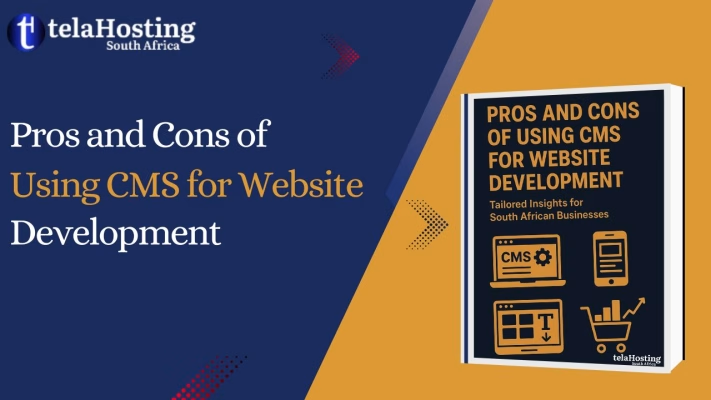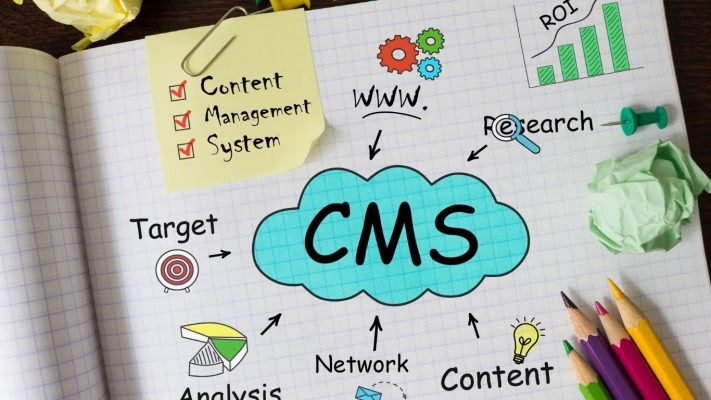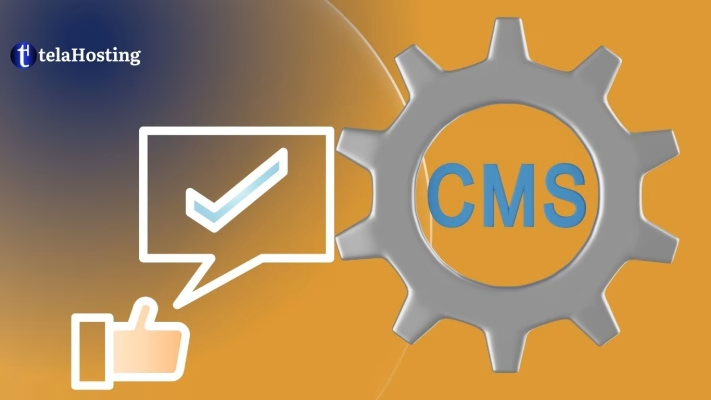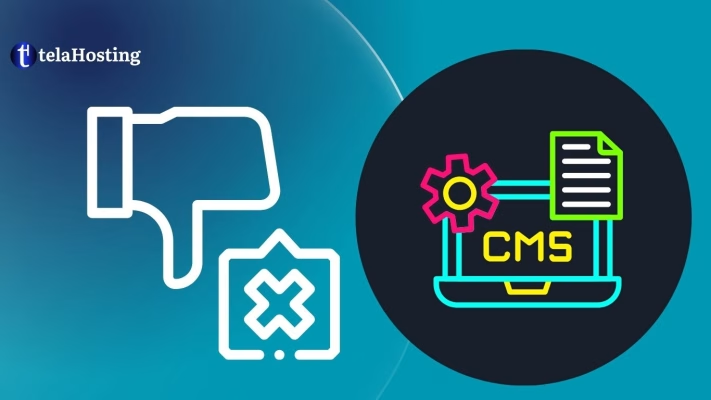
When it comes to building a website, the process can feel overwhelming. A content management system (CMS) has transformed how websites are created and managed, making it more accessible for businesses of all sizes. Whether you’re a small business owner, blogger, or entrepreneur in South Africa, CMS platforms provide an efficient way to design, launch, and maintain a website without requiring advanced coding skills.
However, like every tool, CMS platforms come with their own advantages and disadvantages. Understanding both sides will help you make the right decision for your business in South Africa’s growing digital space.
What Is a Content Management System (CMS)?

A content management system (CMS) is a software application that allows users to build, manage, and modify websites without extensive coding knowledge. These platforms offer pre-designed templates, drag-and-drop builders, and robust tools for customization.
Common Features of CMS Platforms
- User-friendly interfaces
- Support for multiple users and roles
- Integration with plugins and extensions
- SEO-friendly design and functionality
Examples of Popular CMS Platforms
- WordPress: Known for its simplicity and versatility
- Joomla: Offers flexibility and advanced features
- Drupal: A powerhouse for complex, high-traffic websites
If you want to understand the differences between these popular platforms, then you have to read this: WordPress vs Joomla vs Drupal
The Pros of Using a CMS for Website Development

- Ease of Use
Years ago, for every little website update, you had to look for a developer, but with CMS platforms, you can simply do it yourself without any help. These platforms provide intuitive interfaces, drag-and-drop builders, and visual editors that make website creation as simple as editing a Word document. - Cost-Effective Development
Most of these platforms are free or come with affordable pricing options. This significantly reduces the cost of building a website, especially for small businesses or startups. - Time Efficiency
Why spend months building a website from scratch? With these platforms, you can choose from thousands of pre-designed templates and have a fully functional site up and running in days. - Customization and Flexibility
Want a blog, an e-commerce store, or a portfolio? CMS platforms like WordPress offer endless customization options through plugins and themes. You can adapt your site to meet your business goals without reinventing the wheel. - SEO-Friendly Features
Most CMS platforms include built-in tools for search engine optimization (SEO). From adding meta tags to optimizing URLs, these features ensure your website gets the visibility it deserves. - Scalability
As your business grows, so can your website. CMS platforms allow you to add new pages, features, and functionalities without starting over. - Community Support and Resources
Stuck on something? these platforms have vibrant communities where you can find tutorials, forums, and expert advice to solve your issues quickly.
The Cons of Using a CMS for Website Development

- Learning Curve for Beginners
Even though platforms like WordPress are beginner-friendly, others like Drupal may feel overwhelming. Regardless of the CMS you choose, expect to spend some time learning the basics before managing your website with confidence. - Customization Limitations
Most CMS platforms rely on themes and plugins for customization. While these can cover many needs, advanced changes often require coding knowledge or the support of a professional web developer, this is where partners like telaHosting can step in to help. - Security Concerns
Relying on third-party plugins and themes can expose your website to vulnerabilities. Regular updates, strong security measures, and proper maintenance are essential to reduce risks. Many South African businesses rely on telaHosting’s secure hosting environment to protect their sites. - Performance Issues
Adding too many plugins can slow down your website. On top of that, poor hosting choices often lead to slow load times, especially during peak traffic. At telaHosting, we provide optimized hosting solutions that ensure consistent performance for South African websites. - Costs Can Add Up
While CMS platforms like WordPress are free at their core, premium plugins, themes, and ongoing maintenance can increase expenses over time. It’s important to budget for these extras when planning your site. - Dependency on Updates
Frequent updates are necessary to maintain security and functionality. However, updates can sometimes break existing features, requiring quick fixes. Having expert support on hand ensures your site remains stable.
Factors to Consider Before Choosing a CMS
Before jumping into a CMS, evaluate the following:
- Website Purpose: Are you building an online store, blog, or corporate site?
- Budget: Can you afford premium themes or plugins if needed?
- Technical Skills: Are you comfortable learning new tools or coding if required?
- Growth Plans: Will your CMS support your business as it scales?
Table of Pros and Cons of Using CMS for Website Development
| Pros | Cons |
| Ease of Use: CMS platforms offer intuitive interfaces and drag-and-drop builders, making it easy for non-technical users to build websites. | Learning Curve for Beginners: While platforms like WordPress are user-friendly, others like Drupal can be overwhelming for beginners. |
| Cost-Effective Development: Many of these platforms are free, and you can build a professional website without hiring a developer. | Customization Limitations: Advanced customizations may require coding knowledge or professional help. |
| Time Efficiency: Pre-designed templates and themes allow for faster website creation and deployment. | Security Concerns: Vulnerabilities in plugins and themes can lead to security risks if not properly managed. |
| Customization and Flexibility: Plugins and extensions enable you to add various functionalities tailored to your needs. | Performance Issues: Overuse of plugins and poor hosting can slow down your website’s performance. |
| SEO-Friendly Features: Built-in tools and plugins help optimize your website for search engines. | Costs Can Add Up: While basic CMS platforms are free, premium themes, plugins, and ongoing maintenance can increase costs. |
| Scalability: These platforms grow with your business, supporting multiple pages and complex functionalities. | Dependency on Updates: Regular updates can sometimes disrupt site functionality and require immediate attention. |
| Community Support and Resources: Access to forums, tutorials, and expert advice ensures you can resolve issues quickly. | Hosting Requirements: Larger or more complex websites may require higher-end hosting plans to function optimally. |
At telaHosting, we understand the unique challenges South African businesses face in today’s digital world. CMS platforms provide the perfect mix of affordability, flexibility, and ease of use. Whether you’re a small business, a startup, or a blogger, our CMS hosting solutions are designed to meet your needs. We provide:
- Expert Support: A local support team ready to assist you whenever you need guidance on WordPress, Joomla, and Drupal users
- Reliable Hosting: Fast, secure, and scalable servers that keep your website performing at its best.
- Custom Solutions: From simple setups to advanced configurations, we tailor your CMS hosting to suit your goals.
- Affordable Packages: Cost-effective plans built to grow with your business.
- Security First: Regular updates and proactive monitoring to protect your site from threats.
Conclusion
Using a CMS for website development is like having a powerful toolset at your fingertips. While the benefits, such as ease of use, cost savings, and scalability, are undeniable, understanding the potential drawbacks is essential for making the right choice.
At telaHosting, we’re here to ensure that you maximize the advantages of these platforms while minimizing the challenges. Let us help you build, host, and grow your dream website today.